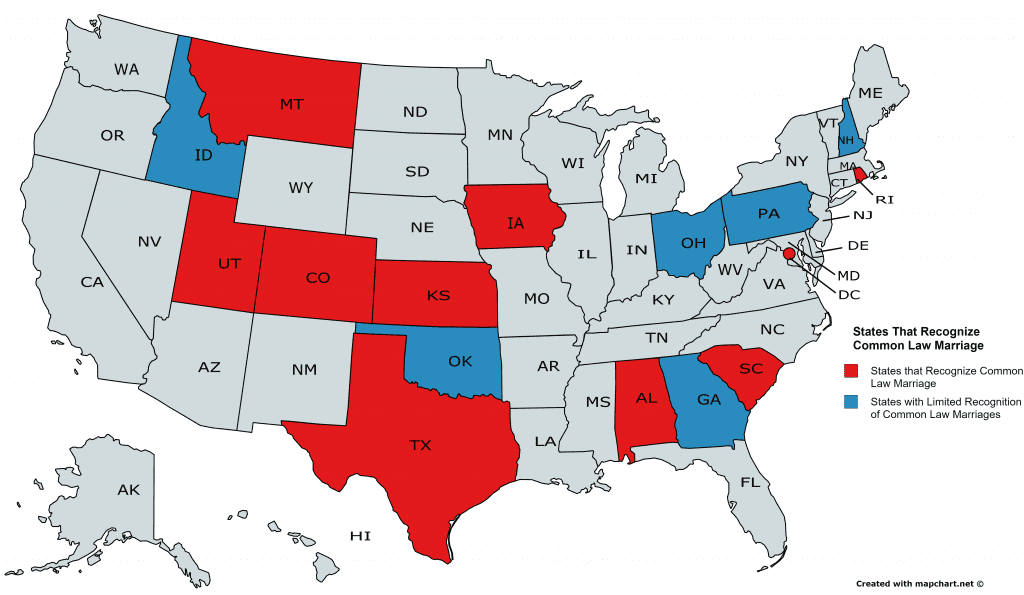States That Recognize Common Law Marriage

What is Common Law Marriage?
Common law marriage is a type of marriage that is recognized in some states based on a couple's actions and intentions. This means that a couple can be considered married even if they have not gone through a formal ceremony or obtained a marriage license. In a common law marriage, the couple must act as if they are married, live together, and present themselves as a married couple to the public.
States That Recognize Common Law Marriage
Currently, only a few states recognize common law marriage. These states include:
- Colorado
- Iowa
- Kansas
- Montana
- New Hampshire
- Oklahoma
- Texas
- Utah
Requirements for Common Law Marriage
The requirements for a common law marriage vary by state. In general, a couple must:
- Intend to be married
- Cohabit as husband and wife
- Hold themselves out to the public as married
Advantages of Common Law Marriage
There are several advantages to choosing a common law marriage:
- No formal ceremony or marriage license is required
- No waiting period or fees
- Legal recognition of the relationship
- Ability to file joint tax returns
Disadvantages of Common Law Marriage
There are also some disadvantages to choosing a common law marriage:
- Difficult to prove the existence of the marriage
- No automatic inheritance rights
- No automatic right to make medical decisions for partner
- May be difficult to dissolve the marriage
FAQs
1. What is the difference between common law marriage and traditional marriage?
The main difference between common law marriage and traditional marriage is that common law marriage does not require a formal ceremony or a marriage license. Instead, it is based on a couple's actions and intentions.
2. Can anyone enter into a common law marriage?
No, only a few states recognize common law marriage, and each state has its own requirements for this type of marriage.
3. How can I prove that I am in a common law marriage?
Proof of a common law marriage can vary by state, but typically includes evidence of the couple's intent to be married, cohabitation, and holding themselves out to the public as married.
4. Can I get a divorce if I am in a common law marriage?
Yes, if you are in a common law marriage, you can get a divorce. However, the process may be more difficult than a traditional divorce, as you may need to prove the existence of the marriage.
